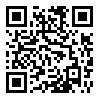Volume 18, Issue 2 (Journal of Iranian Ceramic Society 2022)
Jicers 2022, 18(2): 26-33 |
Back to browse issues page
Download citation:
BibTeX | RIS | EndNote | Medlars | ProCite | Reference Manager | RefWorks
Send citation to:



BibTeX | RIS | EndNote | Medlars | ProCite | Reference Manager | RefWorks
Send citation to:
Ahmadimoghadam H, Mikael Vand S, Shahmoradzadeh G. Investigating the effect of borax on the hydration and properties of Portland cement. Jicers 2022; 18 (2) :26-33
URL: http://jicers.ir/article-1-438-en.html
URL: http://jicers.ir/article-1-438-en.html
Shahrekord University , hajar.ahmadi@sku.ac.ir
Abstract: (2379 Views)
Portland cement is known as the third most important material in the construction industry. In this research, the effect of borax on the properties of Portland cement including setting time, hydration percentage and compressive strength has been investigated. For this purpose, borax was used in amounts of 0.2, 0.4, 0.6 and 1 wt%. The obtained results showed that the setting time of Portland cement increases with increasing the amount of borax. The addition of 0.6 wt% of borax increased the setting time of Portland cement by about 50%, and the initial setting increased from 120 minutes to 170 minutes. The presence of borax in amounts less than 0.6 wt% led to an increase in the percentage of hydration and compressive strength of cement. The highest values of degree of hydration and compressive strength were obtained for the sample containing 0.6 wt% of borax. The 28-day compressive strength was 57 MPa for this sample, which was 42 MPa for the pure Portland cement sample. The increase in strength is attributed to the higher degree of hydration and lower porosity. By increasing the amount of borax to 1 wt%, there was a significant drop in the compressive strength of cement, which is related to the lower degree of hydration and a higher percentage of porosity.
Type of Study: Research |
Subject:
Structural Oxide and Non-Oxide Ceramics
Received: 2022/10/11 | Accepted: 2022/12/1
Received: 2022/10/11 | Accepted: 2022/12/1
Send email to the article author
| Rights and permissions | |
 |
This work is licensed under a Creative Commons Attribution-NonCommercial 4.0 International License. |




